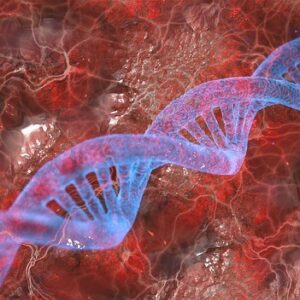In early February, global biopharmaceutical company Sanofi and biotechnology company Regeneron Pharmaceuticals, Inc. (“Regeneron”) shared that its dually developed drug Libtayo (cemiplimab-rwlc) recently received FDA approval. Now, Libtayo stands as the first approved immunotherapy for patients with advanced or metastatic basal cell carcinoma (BCC). Specifically, the drug is designed for patients who have not previously been treated with, or cannot be treated with, a hedgehog pathway inhibitor.
Libtayo
So what is Libtayo? This fully-human monoclonal antibody inhibits PD-1, an immune checkpoint receptor. A monoclonal antibody is basically a laboratory-created protein that acts as an antibody and mimics our immune response. Normally, cancerous cells might use the PD-1 pathway to prevent T-cells, a type of immune cell, from working. By inhibiting PD-1, Libtayo simultaneously inhibits the ability of cancer cells to grow and metastasize.
Doctors recommend a dosage of 350mg intravenously every three weeks either until the drug becomes too toxic or the cancer progresses. Libtayo was developed using Regeneron’s proprietary VelocImmune technology which creates fully-human antibodies using a genetically-engineered mouse platform and genetically-humanized immune system. In addition to basal cell carcinoma, Libtayo is being explored as an option for non-small cell lung cancer (NSCLC), cervical cancer, and cutaneous squamous cell carcinoma (cSCC).
The recent approval, based on Priority Review, hinged on data from a Phase 2 clinical trial. 132 patients enrolled. Patients had either not responded well to prior HHI treatment or were intolerant and thus unable to use HHI therapy. During the trials, researchers determined that Libtayo was able to assist patients with long-lasting results. The drug also halted disease progression.
While the drug is relatively safe and well-tolerated, some adverse reactions did occur. These included:
- Urinary tract and upper respiratory tract infections
- Drowsiness
- Fatigue
- Colitis (inflammation of the colon)
- Anemia (low red blood cell count)
- Diarrhea
- Adrenal insufficiency
- Pruritus (intense itching)
- Rash
- Musculoskeletal pain
Safety Information
If you are using Libtayo, and develop any of the following health symptoms, please contact your doctor right away, especially if they worsen over time:
- Shortness of breath / difficulty breathing
- Chest or abdominal pain
- Nausea and vomiting
- Jaundice (yellowing of the skin and eyes)
- Chronic cough
- Easy bruising and bleeding
- Dark, foamy, or bloody urine
- Diarrhea or dark, tarry, or bloody stool
- Irregular heartbeat
- Changes in mood or behavior
- Unusual headaches
- Confusion or memory problems
- Severe muscle pain or weakness
- Appetite loss
Basal Cell Carcinoma
According to the Skin Cancer Foundation, basal cell carcinoma:
is the most common form of skin cancer and the most frequently occurring form of all cancers. BCCs arise from abnormal, uncontrolled growth of basal cells.
Basal cells form part of the top layer of our skin. Most typically, basal cell carcinoma occurs because of long-term UV ray exposure. This can come from the sun or from tanning beds. Basal cell carcinoma, then, often occurs on areas of the skin which are more highly exposed to the sun, such as your neck and head.
Early detection is key in treating basal cell carcinoma. To determine whether a skin lesion could be BCC, the Skin Cancer Foundation lists 5 warning signs:
- A white, yellow, or waxy “scar-like” area which appears shiny and taut with poorly defined borders
- An open sore which does not heal. This sore might bleed or ooze, or crust over, over a number of weeks.
- Red or irritated patches that may or may not hurt
- A small pink growth with a crusted center indentation and raised, rolled edges
- Pearly, clear, red, white, or pink bumps







